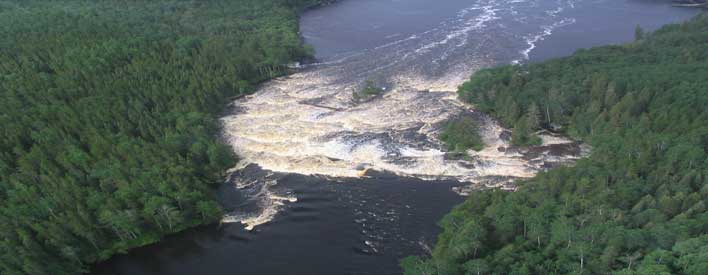
Chief Jonah Strang has declared a state of emergency for Pikangikum First Nation, a northwestern Ontario community with an on-reserve population of 2,400, no all-year road access, and no indoor water supply.
Two years ago, a government study indicated that the Pikangikum water system was likely to fail, and now it has, said Strang in a release. The system, he said, requires “an immediate and comprehensive overhaul.”
In the meantime, community members are gathering untreated water from the nearby lake. “Parents may have no choice but to expose their children to contaminated drinking water,” said Strang. “As a result, there is a significant risk of sickness or worse, especially among younger and older citizens.”
In response to the crisis, Pikangikum and the Independent First Nations Alliance have ordered two 21,000-litre shipments of bottled water and its transport.
“This is a state of emergency. There is a real risk of sickness or worse. It is shocking and unacceptable that this kind of situation can take place in Canada,” said Strang.
On April 19, Assembly of First Nations (AFN) National Chief Shawn A-in-chut Atleo echoed that statement in support of Pikangikum. “Literally thousands of our people are in homes that do not have clean drinking water. Our people are getting sick and at risk of disease. These types of problems should not be happening in a country like Canada. We need action now.”
In the near future, the federal government is expected to release a national engineering assessment on wastewater and water systems in First Nation communities that will provide a more detailed picture of the national scene.
“We want to see action for the people of Pikangikum and all First Nation communities that are struggling to ensure their citizens have access to clean drinking water,” said National Chief Atleo. “We need a clear commitment by the federal government to work with First Nations to deliver on a plan of action for stable and sustainable infrastructure including First Nations water and wastewater systems.”
Read more about water management in small communities like Pikangikum in Water Canada’s upcoming May/June issue.









